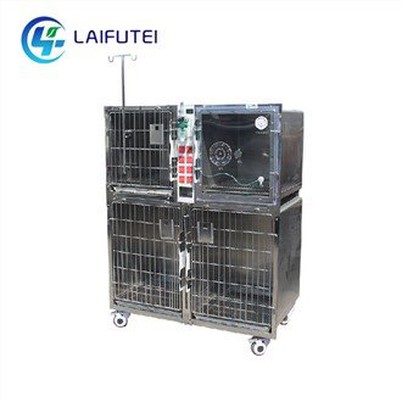What Is Critical Care For Pets?
Leave a message
Introduction
Critical care for pets is a specialized field of veterinary medicine that encompasses the diagnosis and treatment of animals suffering from life-threatening conditions. It involves providing emergency care to pets that require immediate attention due to a severe illness or injury. Critical care for pets is often required in situations where the animal''s condition is rapidly deteriorating, or if they require surgery or other procedures that require intensive care. In this article, we will discuss what critical care for pets entails, the common conditions requiring critical care, and the importance of seeking professional veterinary care when your pet is critically ill.
What is Critical Care for Pets?
Critical care for pets involves providing immediate and aggressive treatment to animals that require intensive care due to their critical condition. The aim of critical care is to stabilize and treat the animal''s condition, as well as to prevent and manage complications that may arise from their illness or injury. Critical care for pets is similar to critical care for humans and involves close monitoring of vital signs, and the administration of medication, IV fluids, and oxygen when required.
Conditions Requiring Critical Care
Critical care for pets is required mainly when an animal''s condition is life-threatening or when they require immediate surgical intervention. Some of the common conditions that may require critical care include:
- Trauma: Pets that have been involved in accidents or have experienced severe falls may require critical care due to the extent of their injuries.
- Cardiovascular emergencies: Pets experiencing cardiovascular emergencies such as heart failure, arrhythmia, or cardiac tamponade may require critical care to stabilize their condition.
- Respiratory emergencies: Respiratory emergencies such as asthma, pneumonia, or pulmonary edema may require critical care to support the animal''s breathing and oxygenation.
- Neurological emergencies: Neurological emergencies such as seizures, brain trauma, or spinal cord injuries may require critical care to stabilize the animal''s condition and prevent further damage.
- Gastrointestinal emergencies: Gastrointestinal emergencies such as gastrointestinal obstruction or bloat may require emergency surgery and critical care to prevent complications and restore normal gut function.
The Importance of Seeking Professional Veterinary Care
If you suspect that your pet requires critical care, it is essential to seek professional veterinary care immediately. Delaying medical attention in a life-threatening situation may result in irreversible damage or even death. Seek veterinary care if your pet exhibits any of the following signs:
- Difficulty breathing or panting.
- Rapid heart rate or irregular heartbeat.
- Blood in vomit, urine, or feces.
- Signs of pain, such as vocalization or agitation.
- Difficulty standing or walking.
- Collapse or loss of consciousness.
- Seizures or convulsions.
When you bring your pet to a veterinary clinic, they will evaluate your pet''s condition and provide emergency care to stabilize their condition. Your veterinarian may run a series of diagnostic tests to identify the underlying cause of your pet''s illness or injury. Once your pet''s condition is stable, your veterinarian may recommend further treatment, such as surgery or medication, to address the underlying condition.
Conclusion
In conclusion, critical care for pets is a specialized field of veterinary medicine that involves providing emergency care to animals that require immediate attention due to their critical condition. It involves stabilizing the animal''s condition, preventing further complications, and managing their illness or injury to restore them to health. If you suspect that your pet requires critical care, it is essential to seek professional veterinary care immediately to prevent irreversible damage or death.







